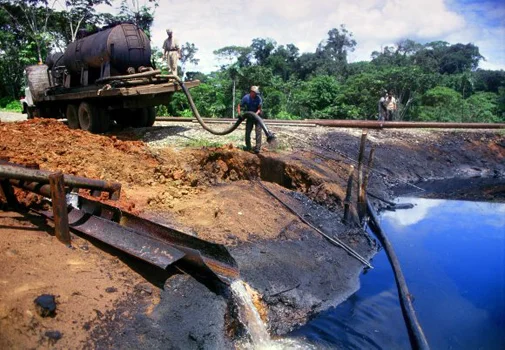Just as in Egypt, at the United Nations summit on climate (Cop27), discussions are being held on how to try to save the planet, the Angolan government authorizes the Californian oil company Chevron to further pollute the waters of the Atlantic Ocean.
In fact, it is not the first time that this has happened: in 2005 there was a huge spill of crude oil which damaged a thousand fishermen; in 2011, a number of civil society organizations in the Cabinda region filed a complaint against Chevron for the same reasons.
According to them, this company would have caused incalculable damage, disappearing various species of fish in the Cabinda Sea, as well as a mangrove field on the coast of the Chilongo River.
Chevron, however, is very well positioned in Angola, given that it has been present in Cabinda since 1954, in blocks 0 and 14, in deep waters, with concessions renewed until 2050 and the production, in 2015, of 5 billion barrels of raw.
For this reason, the Angolan government has never hidden which side it is on and, between the divergent interests of the local fishing communities and environmentalists and those of Chevron, the choice has always gone in favor of the latter entity.
Today, the scenario is repeating itself, perhaps even more worryingly: this time, in fact, according to information from Maka Angola, an initiative dedicated to the fight against corruption and in favor of democracy, founded and led by the journalist Rafael Marques de Morais, these are sporadic concessions, but a real moratorium.
A moratorium that would have the aim of allowing the Angolan subsidiary of Chevron, the Cabinda Gulf Oil Company, to discharge its highly polluting residues directly into the Cabinda Sea, for a total of about 12 million tons.
The extension with respect to the environmental legislation will remain in force until July 2023, and would have been granted due to superior incumbency, according to what can be read in a letter written by the Ministry of Mineral Resources, of oil and gas to the general manager of Cabinda Gulf Oil Company, Peter William Lacobie Jr.
The concession made by the Angolan government would be incomprehensible because it contradicts the spirit of the fundamental principle of the zero discharge policy, approved in 2014, in line with what is happening in the rest of the world.
In 2019, a formally independent authority, the National Oil, Gas and Biofuels Agency, was created, which grants licenses for operations and investments in the energy sector, leaving the national company Sonangol with the task of exploiting local oil fields.
However, this separation between granting and execution tasks does not seem to have gone beyond mere formalism. The new moratorium granted to Chevron would have been negotiated with the highest levels of the Angolan government.
In response to vehement criticism, the executive appealed to decree 97/14. This provides for regimes of exception in certain circumstances, such as those present today in Cabinda.
Here, in fact, there would be no infrastructure capable of treating the residues deriving from oil processing, nor would the transport of such waste to Luanda or Soyo be financially sustainable by Chevron. On these legal bases, the moratorium would be, according to the executive in office, completely legitimate and indeed inevitable.
At the same time as the government response, Cabinda Gulf Oil Company also reaffirmed the correctness and legality of the ongoing procedure, generically emphasizing that it will undertake to implement the best environmental practices for the disposal of its residues.
In short, if on the legal front everything seems to be in order, the same cannot be said about the environment and the protection of the interests of local communities who see their activities increasingly threatened by the excessive power of the government-multinationals combination, towards which it is increasingly difficult resist.
References:
https://www.makaangola.org/2022/11/us-oil-giant-chevron-and-hazardous-pollution-in-angola/







